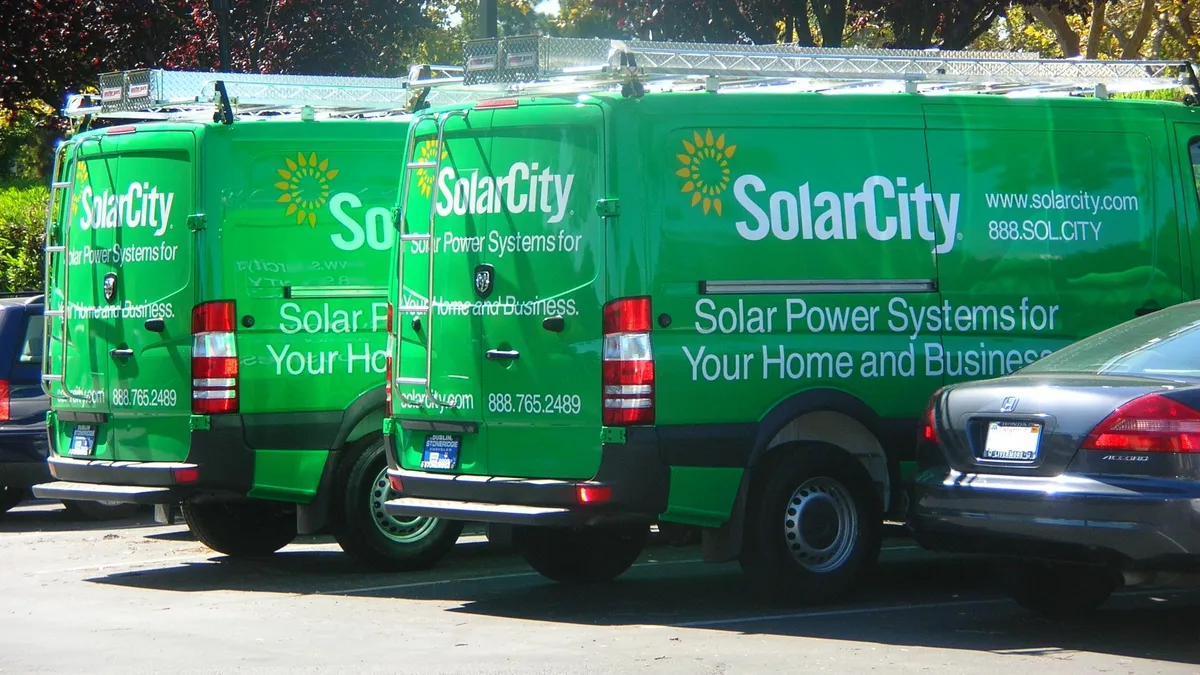Dive Brief:
- SolarCity, the nation's largest solar panel installer, announced Monday that it will offer a microgrid product to enhance electricity reliability in municipalities, remote communities, hospitals, and other similar locations.
- SolarCity's "microgrid-as-a-service" model, called GridLogic, combines the installer's solar panels with its expertise in grid interconnection, energy storage, and controlling software. The microgrids will allow municipalities to create independent and localized electricity networks by integrating distributed solar, Tesla batteries, demand side management and backup generators.
- The move from SolarCity represents a significant shift in the traditional installer business model. Before the microgrid offering, solar companies had regularly pressured utilities to integrate more distributed energy resources onto their distribution grids, but stopped short of efforts to manage the grid on their own.
Dive Insight:
Long a vehement critic of the utility industry, SolarCity is now making moves to join them, at least on a small scale. The company announced its new GridLogic product Monday morning, saying it can create and operate small, independent electric grids better than incumbent utilities.
Peter Rive, the company's co-founder and CTO, told the New York Times that he and other executives were convinced that a "particularly aggressive utility" could manage the distribution grid more effectively than most other utilities through the integration of more distributed energy resources. Eventually, Rive said, that morphed into a belief that SolarCity should try to "run the grid" themselves.
The GridLogic microgrids will combine SolarCity panels with Tesla batteries and other supporting technologies to create localized networks capable of keeping the lights on when the power is out on the larger distribution system. The microgrids will offer demand response capabilities through Tesla's lithium ion batteries that can help smooth out peaks and troughs in rooftop solar generation.
While microgrids can be prohibitively expensive, company spokesperson Jonathan Bass told Greentech Media that its product was "extremely affordable" and "fits into a realistic budget cycle." He added that SolarCity has already constructed a microgrid at an "undisclosed island location"
The GridLogic offering is a watershed moment for the installer, Rive said.
“The microgrid product is basically a culmination of all of the technology that SolarCity’s been developing over the past eight years," he told the Times. And while the distribution grid may not be revolutionized today by the new offering, Rive hopes that SolarCity's microgrid scheme can serve as "a template that can be scaled up to basically be the next-generation grid."













